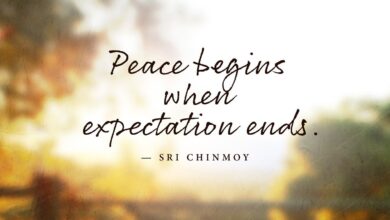
Know your relationship value – Relationship — 2
Act “as if.”
Sometimes it takes a while for our feelings to catch up with our thoughts and actions. We might begin thinking positively and have a vision for how we want our relationship to be, but we still feel uncomfortable about ourselves and our value in the relationship. If you’re single, you might still have low confidence about your ability to attract a partner in spite of your best efforts to think otherwise. While you are waiting for your feelings to catch up with your new awareness and positive thoughts, begin to act “as if” you are confident about yourself and your relationship (or your potential for being in a relationship).
Action Steps: Define where you feel the least amount of confidence related to your romantic relationship. Write down how you believe a confident person would behave in this same situation. (Check out these confident relationship behaviors.) Mentally visualize yourself behaving confidently in this situation, and the next time it occurs, play the part of a confident you. Act until you truly feel it.
Be aware of clinginess and guilt-tripping.
One of the hallmarks of low confidence in a relationship is clinginess and insecurity. When you aren’t confident, you compensate by seeking reinforcement and subtly manipulating the other person through neediness and guilt. You fear they may leave you, so you hold on tighter—which ultimately pushes them away and sabotages your self-respect. Maybe you have legitimate reasons to feel insecure, but holding on tighter or shaming your partner won’t fix the problem. Only healthy, open, and confident communication will help you address any real issues.
Action Steps: Think of ways you might be clinging through neediness and guilt. Write down some of the specific things you do that might be passive-aggressive, whiny, or controlling. With the awareness that this behavior isn’t healthy for the relationship, write a commitment to yourself to mindfully release one or more of these behaviors this week. If you feel there’s a real reason to feel insecure based on your partner’s behavior or words, then calmly and maturely communicate your concerns, even if you fear you’ll hear something you don’t want to hear. Ultimately, you must have honesty and truth as the foundation for any healthy and lasting relationship.
Reframe rejection.
Everyone has been rejected by a romantic partner or love interest at some point in their lives. When you open yourself up to connecting with another person, you make yourself vulnerable to possible rejection. Of course rejection hurts, but it is something you can and should move past if you want to enjoy a loving, healthy relationship in the future. Rejection isn’t an indictment of your character or who you are as a person. It simply means you and this particular person weren’t the right match. In many ways, rejection is a gift, as it saves you from investing any more time in a relationship that won’t serve you well. Rejection can be a great teacher, helping you learn more about yourself and what you want and need from another person. Rejection does require a period of grief, but you will move past this grief more quickly when you release blaming, acrimony, or self-criticism, and have gratitude for what the relationship offered you.
Action Steps: Think about past romantic rejections you’ve experienced. What did you learn about yourself as a result? What lessons did you learn for the next relationship? How have you grown as a result of experiencing the rejection? Visualize a future with this person, knowing they were not the right match for you. Silently express gratitude to them for letting you go and visualize yourself releasing them from your life.
Learn relationship communication skills.
One of the foundations of a confident and healthy relationship is communication. When you are able to articulate your feelings, fears, and concerns in an honest and kind way, the relationship can flourish and grow. This vulnerability and authenticity is necessary for both people to feel safe and fully accepted—without fear of judgment, abandonment, or betrayal. When we don’t communicate our needs and discuss our differences honestly and freely, intimacy will inevitably break down. Healthy communication also requires active listening with your full attention and an open mind. The most successful, intimate relationships involve proactive communication before a fight ever breaks out. However, conflict is inevitable, and conflict resolution should include collaborative problem solving and a mutual commitment to resolution without bitterness and recrimination.
Action Steps: Even if you think your communication skills are good, it never hurts to fine tune them to make you feel more confident and empowered in your relationship and to maintain intimacy and trust. Sit down with your partner, and ask each other these relationship questions to open dialog and understanding. Consider reading a relationship communication book like Non- Violent Communication: A Language of Life by Marshall B. Rosenberg or Getting the Love You Want by Harville Hendrix. Make a commitment to learn about healthy relationship communication and practice what you learn with your partner.
Build sexual confidence.
People who are confident and skilled in romance and sex generally feel good about themselves. They aren’t overly self-conscious about their bodies or worried about appearing desirable. However, they do inquire and care about how to please their partner romantically and sexually. They create time for romance and physical intimacy, and they don’t blame themselves or their partner when sex doesn’t go smoothly. Confident people want stay physically attractive for their partner—but without obsessing about their bodies. Sexual confidence is not all about sex. It is about intimate emotional connection, sharing, pleasing yourself and your partner, and having fun.
Action Steps: Sexual confidence begins with feeling good about yourself and liking who you are. If you’re lacking self-esteem, the best place to start is by working to improve it, perhaps through counseling. If your self-esteem is good, but you just aren’t confident in the bedroom, remember confident sexual behavior can be learned with education from expert sources and books written by qualified therapists. Do some research and reading to enhance your knowledge and creativity. If you want feel better about your body image, exercise regularly, as the endorphin boost will make you feel great. Also communicate with your partner to learn what she/he likes and share what you like to eliminate guesswork and frustration. This will make you both feel more secure.







